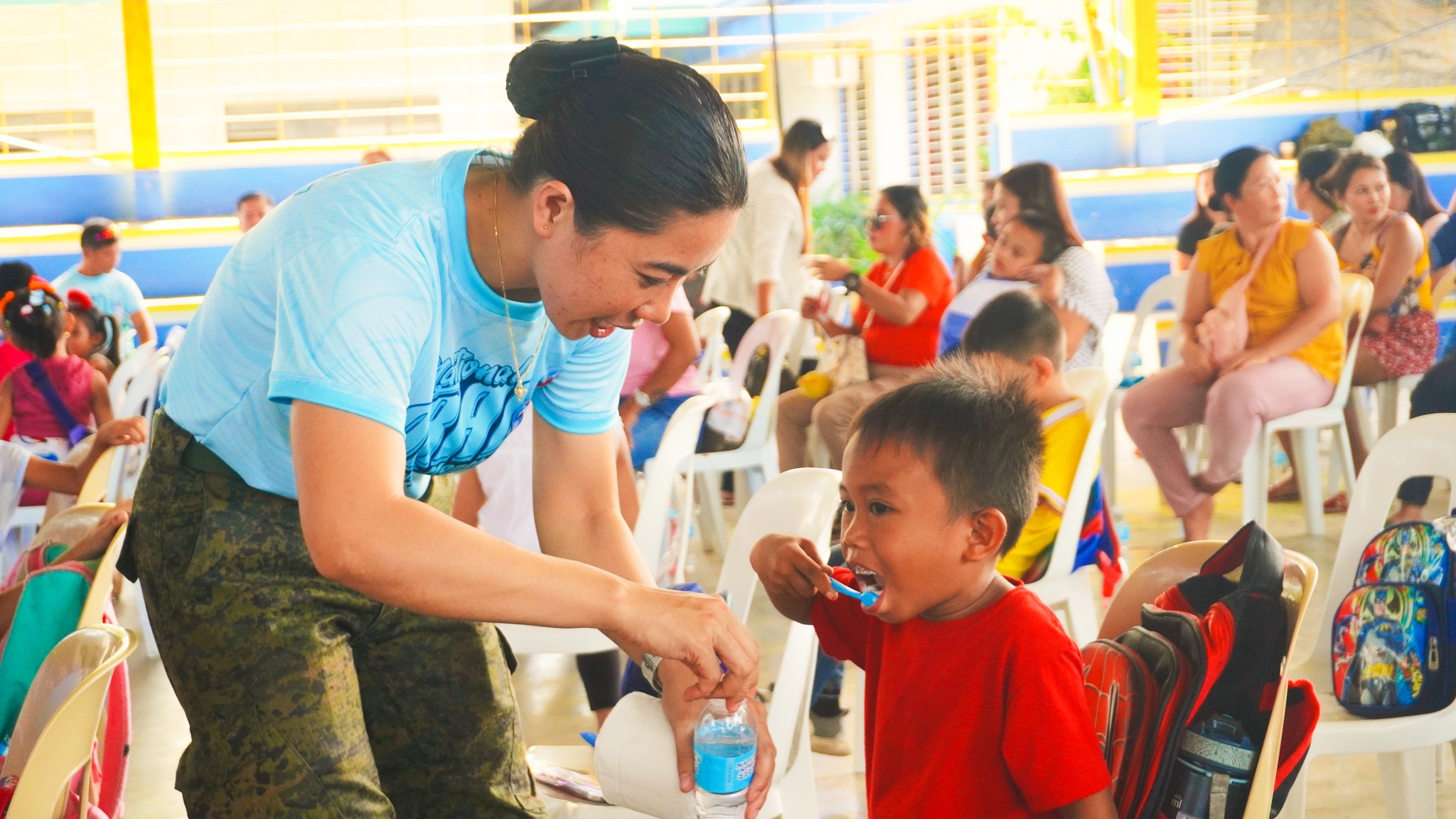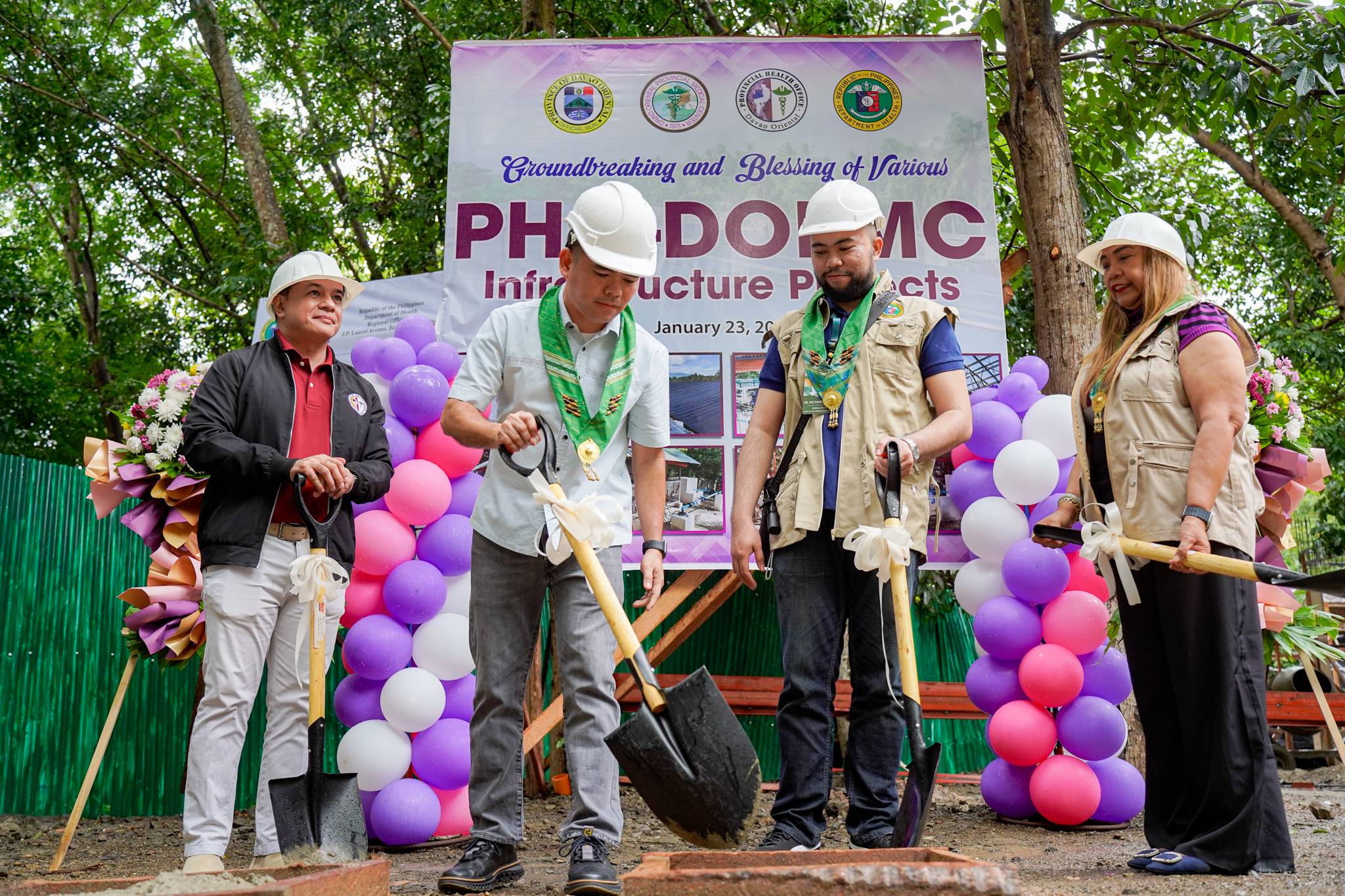Believing everyone deserves quality and affordable health care, Governor Corazon N. Malanyaon is determined to improve health and social services in the province, particularly at the Davao Oriental Provincial Medical Center (DOPMC)—the province’s biggest health facility.
During the Local Health Board meeting on Monday, September 12, Governor Malanyaon said she would streamline all services to cater to poor patients, especially in terms of social services.

Well-known for her innovative health programs, including DOPMC’s massive enhancement and expansion in 2011, Governor Malanyaon emphasized the need to efficiently utilize funds intended for the patients.
“As far as entertaining indigent patients, we all know na ang pumumunta sa hospital, talagang walang pera. (… we all know that those who go to our hospital have no money). They are less educated and not familiar with the operation of the hospital’s process. So, I think there is really a need to improve our services with respect to catering to their needs,” stressed Governor Malanyaon.

“Time is of the essence, especially when it comes to saving lives, and it should not take time to avail of the services or funds made available to indigent patients. I am quite emotional about that. And I don’t like to hear that there are already admitted patients while the funds for them are not utilized,” she lamented.
Governor Malanyaon stressed that in terms of social services, only those who have compassion for poor patients should take charge of facilitating their concerns. “The important thing is that ang ilalagay natin na mga frontliners ay yung may puso, (Let us put frontliners who have a heart for the poor),” she said.

Like other government hospitals, the DOPMC receives discretionary funds from various benefactors, including funds from congressmen, mayors, and donors.
Gov. Malanyaon, during her term in Congress, was considered one of the District Representatives in the country who put the biggest allocation of their discretionary funds for medical services.
Gov. Malanyaon urged other Local Chief Executives to do the same. She encouraged them to put funds at the hospital so their admitted constituents would immediately get assistance out of their funds. This way, patients directly get help while enabling the hospital to generate income.
The City of Mati, which has the most patients admitted to the hospital, has downloaded funds to cater to their patients.
𝗨𝗻𝗶𝘃𝗲𝗿𝘀𝗮𝗹 𝗛𝗲𝗮𝗹𝘁𝗵 𝗖𝗮𝗿𝗲
Further easing patients’ burdens, the provincial government welcomes the ongoing integration of the Universal Health Care Law (UHL) in the province.
Implemented under R.A. 11223 or the Universal Health Care Act, the Universal Health Care intends to provide patients access to quality and affordable health care.
One of its goals is to decrease the out-of-pocket expenses of families. “This means some health services may become more affordable, but not everything will be free. At the very least, health goods and services prices will be predictable and affordable.”

Aside from that, the UHC also establishes a province-wide Health Care Provider Network, which will improve primary care, supported by hospitals contracted as part of a network, and make PhilHealth membership automatic for every Filipino. This will eventually lead to the establishment of better networks of providers and facilities, making health accessible for all.
During the LHB meeting, the Board passed a resolution for the Inter-LGU Memorandum of Agreement on the Universal Healthcare Integration of the LGUs to the province-wide health system.
Provincial Health Officer II Dr. Reden Bersaldo anticipates the full integration of the UHC in the province by 2025.
For her part, Governor Malanyaon lauded the Provincial Health Office for ensuring the smooth integration of Universal Health Care in the province, which would help her realize her vision of providing quality and affordable health care for all. By Karen Lou Deloso | Photos by Mark Oliver Alvite




